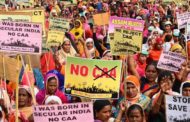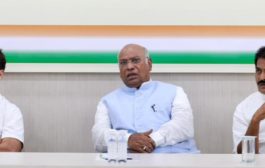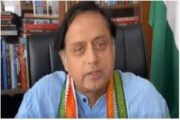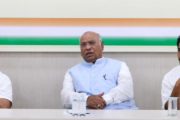Indians are going to begin casting a ballot on the planet’s biggest law based exercise. The nation’s 900m enlisted voters will cast a ballot in national decisions between April 11 and May 19 crosswise over 1m surveying stations in 543 voting demographics. India has a Westminster-style parliamentary vote based system with voters choosing their agents to India’s lower place of parliament, the Lok Sabha. Casting a ballot has been lurched more than seven stages to guarantee that the constituent procedure is given the essential security. The outcomes will be proclaimed on May 23.
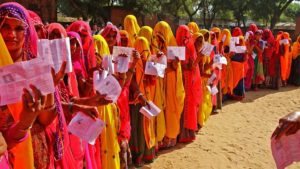
India’s present leader, Narendra Modi, is on the ballot as the leader of the Hindu patriot Bharatiya Janata Gathering (BJP) and its partners the National Law based Coalition. A polarizing figure, suppositions separate pointedly over Modi’s record in government and his heritage.
Supporters demand that Modi has introduced financial advancement, military quality, national pride and a feeling of certainty among the nation’s Hindu dominant part. Faultfinders challenge such cases, indicating taking off joblessness (the most noticeably terrible in 45 years), agrarian pain, reassertion of station benefit and social polarization.
Modi faces a scope of resistance powers. The guideline restriction is given by the Congress Gathering and its partners, the Unified Dynamic Union. Different rivals incorporate provincial gatherings in various states, for example, Uttar Pradesh, West Bengal and Andhra Pradesh, just as radical gatherings in the territory of Kerala. The BJP and its partners appreciate a devastating lion’s share in the Lok Sabha, controlling 336 of the 543 seats: the BJP alone has 268 seats.
Fears proliferate that Modi’s re-appointment will lease into pieces India’s established qualities and social texture. Since the BJP’s climb to control, lynchings of social minorities, particularly Dalits and Muslims, have been on the ascent. Pioneers of India’s truly mistreated Dalit people group stay on edge that the BJP looks to destroy the certifiable activities for persecuted populaces ensured by the Indian constitution. The general thought of India is in question.
A flourishing vote based system
At the point when India ended up autonomous in 1947, few individuals anticipated that the nation should endure. By and by, Indians presented all inclusive grown-up suffrage not long after in the wake of acquiring freedom and embraced a republican constitution in 1950, an entire 15 years before monetary superpowers, for example, the US lifted education and duty capabilities for casting a ballot.
All through the 1960s global spectators stayed suspicious of India making due as a majority rules system, given its enormous dimensions of destitution and lack of education. However, India made due as well as rose – imperfections and everything – as one of the world’s most flourishing vote based systems. The nation displays an exceptionally moving story of the manners by which the absolute most unfortunate individuals on earth have looked to build and support majority rules system against colossal chances. Their accomplishments are under danger today.
India piercingly represents the worldwide provokes presented to majority rule government by the ascent of patriotism and populism. Character governmental issues, or a legislative issues that centers around individuals’ specific social personalities, penetrates political accounts in India as somewhere else on the planet in 2019. Indians are looked with a thought of patriotism that tries to bar noteworthy areas of their own populace from its ambit. Furthermore, they have borne the brunt of conservative populism, as appeared by the development of cow assurance squads managing vigilante equity in the course of the most recent couple of years Social personality gives the premise of political activation. India today faces these difficulties nearby nations, for example, Brazil, Turkey, the US and different European nations. Modi joins a world of strongmen government officials, for example, Brazil’s Jair Bolsonaro, Turkey’s Recep Tayyip Erdoğan, the US’s Donald Trump and Hungary’s Viktor Orbán, blamed for moving back popularity based accomplishments of the most recent couple of decades.
How Indians react to the difficulties of exclusionary patriotism, conservative populism and supremacist personality governmental issues in the 2019 decisions holds key exercises for the world as it defies the worldwide descending into sin of majority rules system. All things considered, races give a window onto the expectations harbored by natives, the tensions they go up against and the conceivable outcomes they envision. The stories that rise preceding, amid, and following any decisions offer interesting experiences into progressing procedures of social change.
India Tomorrow
It is into these creative abilities, accounts and social procedures, instead of the maneuvers of the distinctive ideological groups, that The Discussion will dive throughout the following few weeks.In a seven section arrangement, India Tomorrow, from The Ant colony dwelling place digital broadcast, The Discussion will investigate the manners by which patriotism and populism are happening in India as the nation heads to surveys. We will talk scholastics from around the globe to help light up the points that are vital to the inevitable races as well as offer an understanding into the social change Indians are encountering in the 21st century.
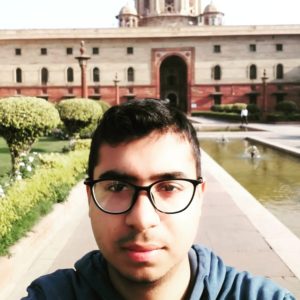
Shams Ahmad is student of La Martiniere College, Lucknow



